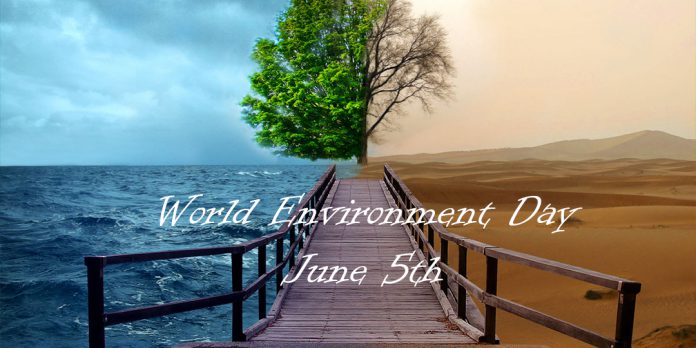Let’s start by wishing you all a Happy World Environment Day! Today, something unusual happened. In the morning I stepped out in my backyard, I could hear the sounds I haven’t heard in years:
Birds humming a happy song,
Reclaiming the lost skies where they belong,
Trees are the deeper hue of green,
The grass is a brighter shade of lush,
Squabbling squirrels that hang out on trees,
The small tree house I made a year ago has visitors now,
And the world seems quieter place.
Facebook, Twitter, Instagram illustrate different stories of change in our surroundings. Undoubtedly, the lockdown has created a great impact on Mother Nature. I took the newspaper and sat in the lap of nature; Newspaper Headline says “the air is so clean, you can see the snow-capped Himalayas from Jalandhar”-something not seen in decades, Delhi’s air quality has been improved; various animal sighting is reported as they have started exploring the quiet streets. So is the nature reclaiming the earth? Has nature triumphed? The answer depends on what you are looking at and the angle from which you’re looking at it, and most importantly are you prepared to take it.

A scientific paper published in Nature shows that collective action taken on global action can make a difference. Due to fewer vehicles on the road and people being prudent about their activities, nature is now finally able to breathe. A sudden drop in pollution level has led to a positive effect on the ozone layer, the environmental damage has been reversed and the ozone layer is healing. The effect of decreased nitrogen dioxide and a drastic reduction in pollution can be seen in the sparkling clear water flowing through the canals of Venice after years, and people even witnessed swans swimming in it. River Ganga which was once known as the purest river has suffered a lot due to inhuman activities but due to lockdown the water quality has improved over the past few weeks, affirmed by the Ganga Pollution Control Board. A similar effect can be seen on the Yamuna, reduction in the fecal coliform level during the lockdown; it is finally free of foam. Seismic noise caused by human activity is reduced to 1/3rd as compared to pre-lockdown levels, acknowledged by seismologists, which helps in detecting earthquakes and other seismic activities more precisely.

Moreover, this whole scenario has a positive effect on the mental health of humans. Hustle-bustle of human life leads to various psychological disorders such as stress, anxiety, and depression in which lockdown is working as a moment for shunning all the crutches of modern din and finding stronger self. To make use of free time in the hand, people are turning to the garden and doing small scale-agriculture. According to the study conducted at Rutgers University flower and flowerbeds can help to cure depression, inhaling and touching the microbes in the garden soil relieves stress, much like the smell of rain. Also, every plant contributes a small amount of great purpose- the breath of life.
The saddest part is that whatever relief the earth is getting now is temporary. Our audacious tendency has to lead to the spread of the virus from Wuhan to distant corners of the world. The current situation shows how peculiar we have made our lives so far and gives a brief taste of how our lives could be if we have lived life differently. But the question is when the winds of catastrophe find its way out, and we return to the chaos of urban life, will we remember that we have right to see the blue skies and breathe clean air, or will push these thoughts and dive back into the computer screens or mobile phones with headphones plugged in.




